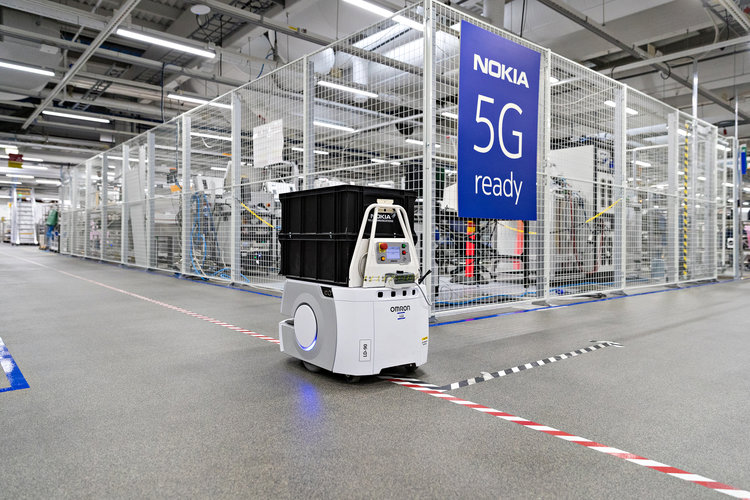Back in 2015, the director of a British 5G research centre declared “5G will be the first generation of reliable connectivity to the extent we won’t have anything called 6G.”
Ignoring the fact that one project in Northern Finland has already started work on 6G networks, the quote encapsulates the nature of the 5G hypetrain.
Its supporters have promised not just the faster speeds and greater capacity to be expected of every major iteration of mobile technology, but revolutionary applications and an era of ubiquitous connectivity that will change the world forever.
“It’s been a pissing content,” observed Paul Hjul, the director of Crystal Web at the recent Broadband World Forum. “Hype is a good thing, but it can make you look like you’re more innovative than you actually are.”
EE 5G launch
But in the past week, a vision of what 5G will actually look like in the UK has emerged. All four major operators are working on 5G networks and applications, but EE and Three have finally offered some detail and a vague 2019 launch date.
EE has repeatedly stated its desire to be the first to launch a 5G network in the UK and has said it will upgrade 1,500 sites in 16 major cities during the first year of operation. The launch is expected to coincide with the availability of the first compatible handsets and EE will also offer Fixed Wireless Access (FWA) broadband.
EE’s early vision will be one of superior mobile broadband and converged networks comprising 5G, fibre and Wi-Fi, with more transformative elements waiting until the arrival of future standards that lower latency.
“5G in 2019 will not be about autonomous cars, and automated factories,” said EE CEO Marc Allera. “5G in 2019 will be about delivering the best mobile experience you’ve ever had and getting the best speeds and connections.”
Three investment
While EE was the first to launch 4G in the UK 2012, Three was the last, waiting until 2013. This strategy will not be replicated with 5G, with the company believing its 3.4GHz spectrum holdings mean it can lead the UK market for the first time.
Its £2 billion 5G investment programme includes new equipment, spectrum, IT upgrades and the creation of a new virtual core network. It is also targeting a 2019 release date, most likely in the second half of 2019.
It also believes there will be significant performance enhancements for mobile broadband users, but it is calling 5G ‘wireless fibre’ and emphasising its viability as a genuine alternative to fixed broadband.
“5G is another game-changer,” declared Three CEO Dave Dyson. “It opens up new possibilities in home broadband and industrial applications, as well as being able to support the rapid growth in mobile data usage.
“We have been planning our approach to 5G for many years and we are well positioned to lead on this next generation of technology.”

Overhyped?
Vodafone has previously detailed its plans to hold 5G trials in seven major UK cities before gearing up for a commercial launch in 2019. It too will offer enhanced mobile broadband and FWA and plans to have 1,000 5G sites by 2020.
Meanwhile, O2 is holding trials of 5G in parts of the UK (including the O2 arena) and has released a study into the potential economic impact of the technology on the country. However, it is the only major operator yet to offer a major insight into its rollout plans.
There are still a lot of variables. Operators continually complain about red tape preventing network construction, while there is need for more spectrum on multiple bands available at affordable prices.
But this was the week that 5G transitioned from an idea into a reality. Whereas the UK was the 54th country in the world to have a 4G network, it will be among one of the first to receive a 5G service – most likely from all four major operators.
In the early days, 5G will be for early adopters and 4G networks will continue to satisfy the demands of most users. This gives operators time to upgrade their infrastructure, expand coverage and identify the applications that will drive uptake and live up to the hype that has been generated over the past few years. Whatever that will be is anyone’s guess.
“Because [the industry] got the killer app for 3G and 4G wrong, we’re not even trying to predict this time round,” quipped Adrian Scrase, CTO at ETSI.
However, Ofcom CTO Mansoor Hanif believes the killer app of 5G isn’t an app at all.
“I think 5G is a killer platform that can handle services,” he said. “3G was overhyped but 4G was underhyped as it was much better than we thought and 5G started with the wrong type of hype. We’ve moved to the right type of hype and I feel as though the platform is the areas that should be hyped. It’s a battering ram to introduce other things like automation.”
- Here are the best mobile phone deals for November 2018
from TechRadar - Networking news https://ift.tt/2K7Tnbv
via IFTTT
0 التعليقات: